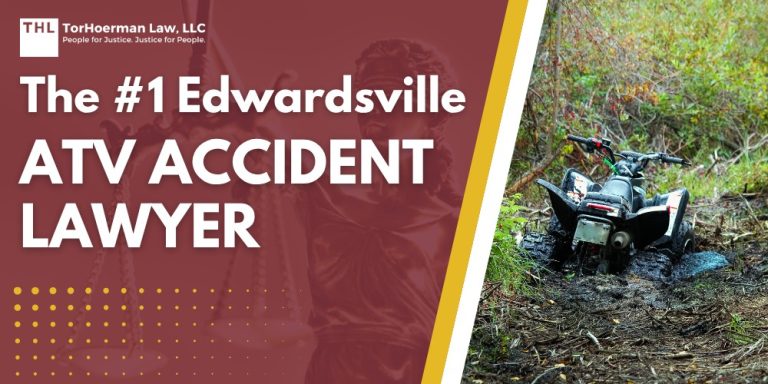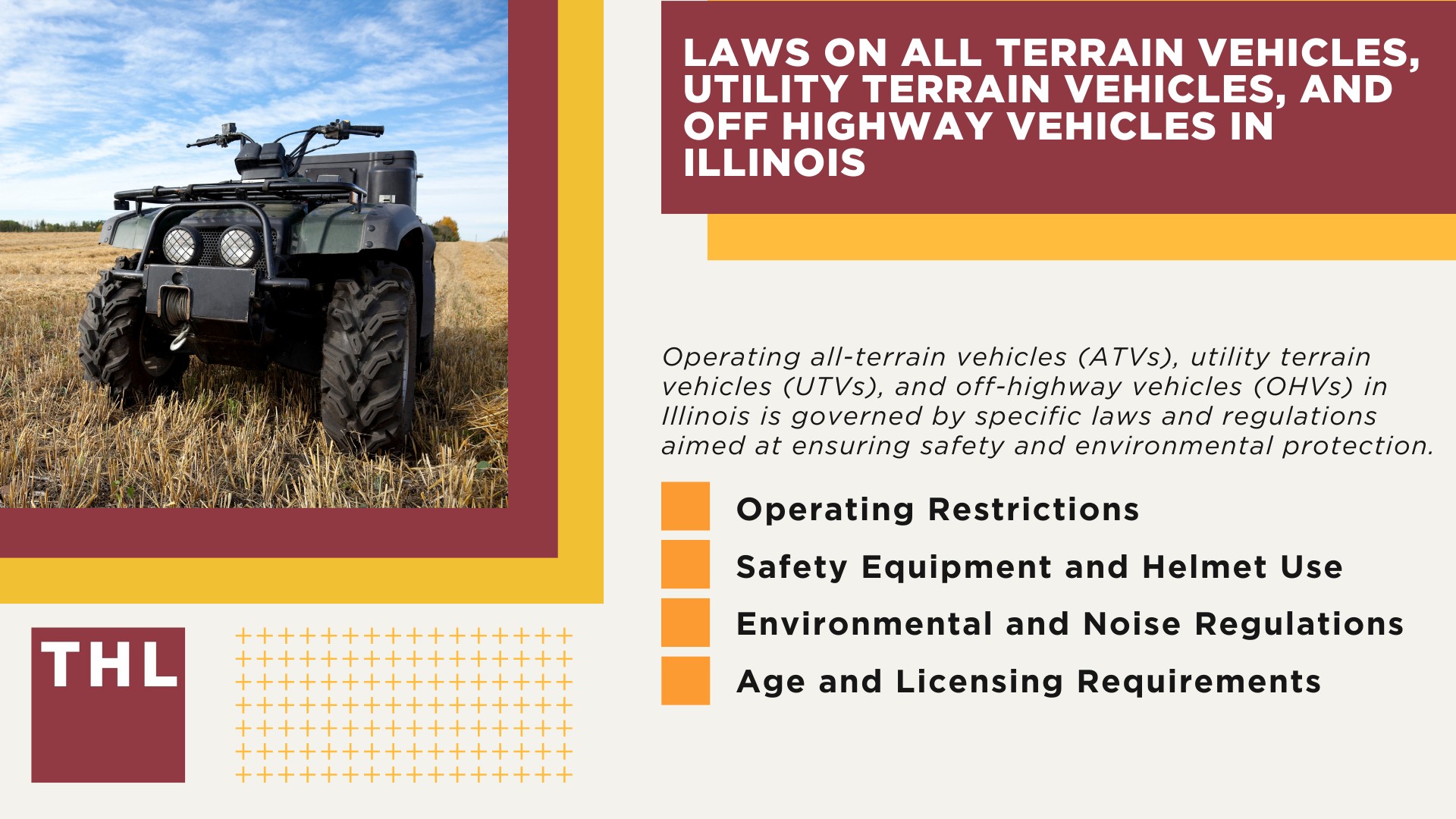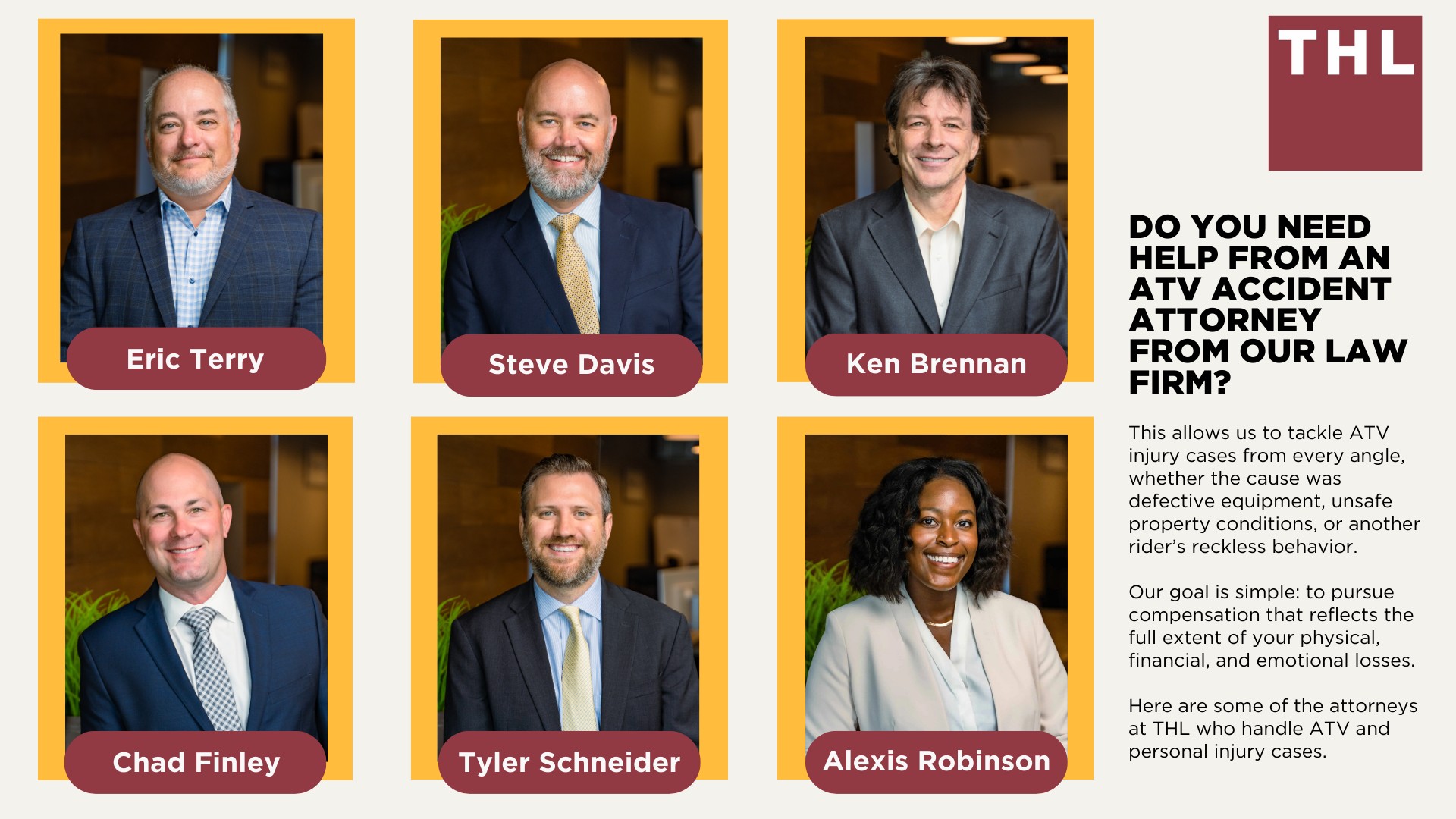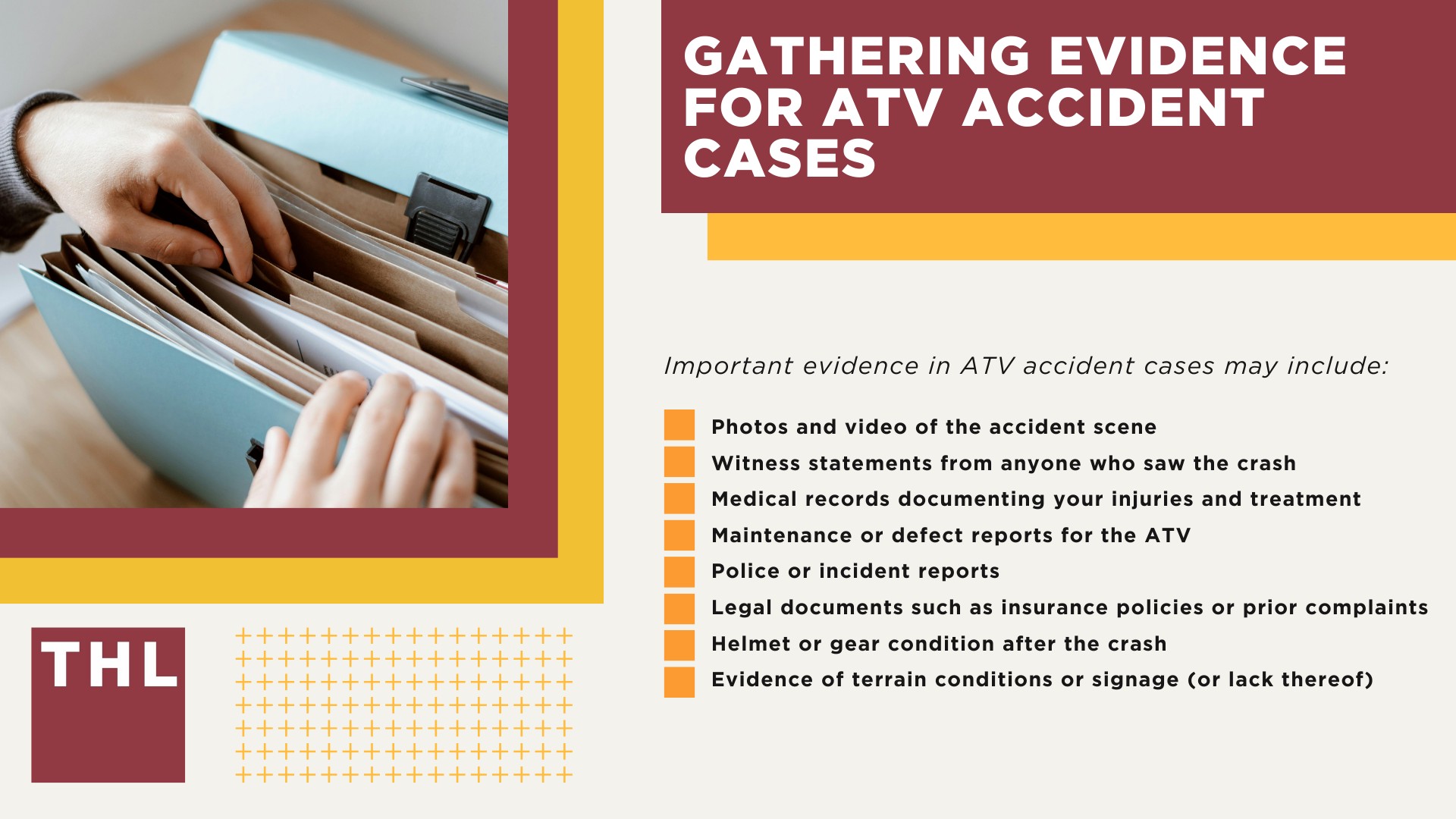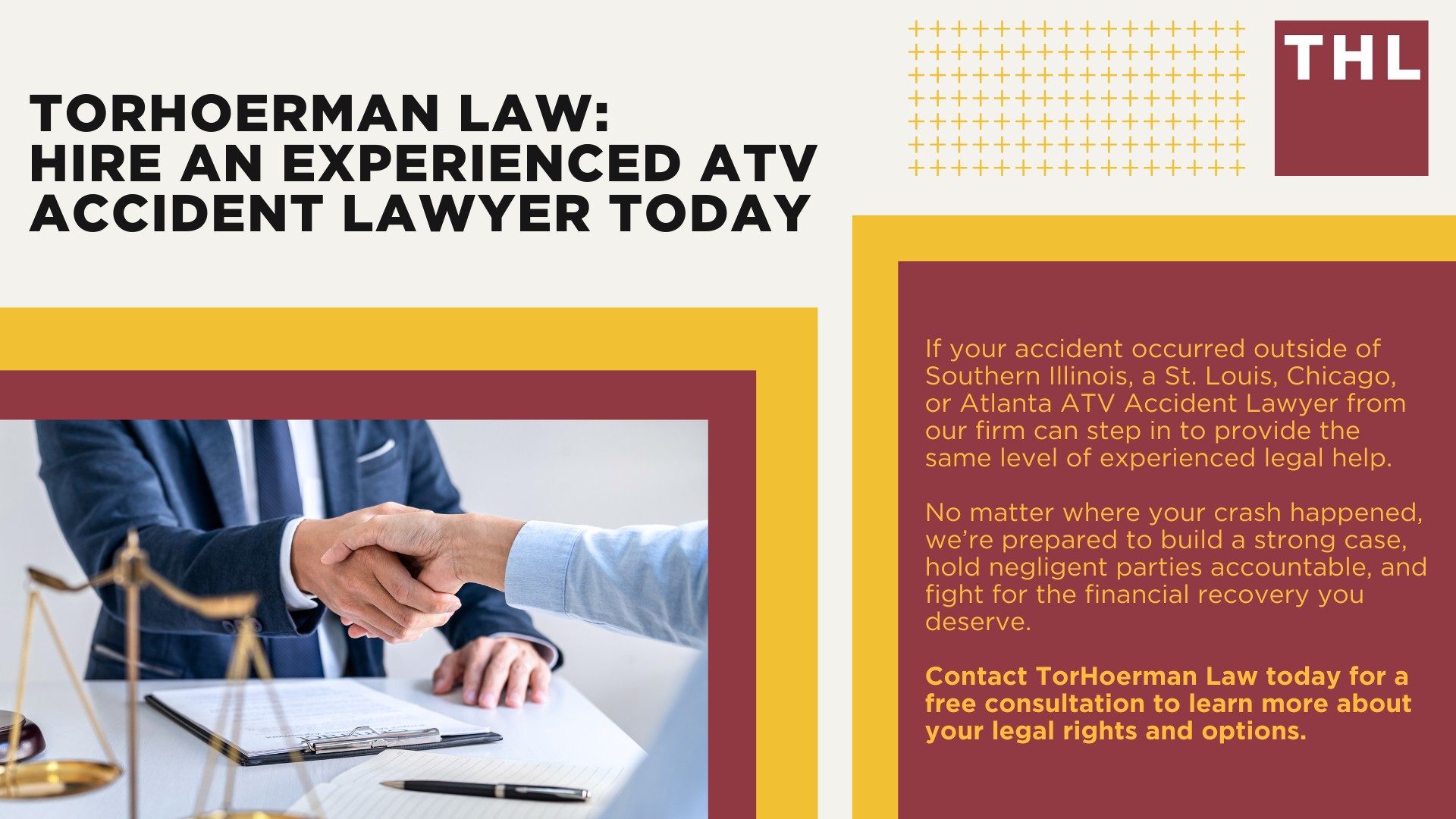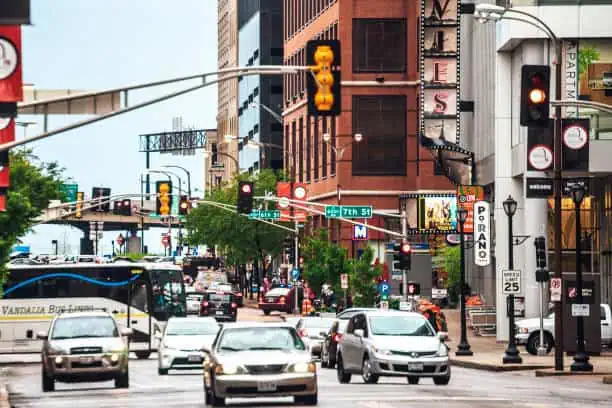All-terrain vehicles (ATVs) and off-highway vehicles (OHVs) are designed for recreational use on rough terrain, but many ATV accidents happen due to negligence, reckless behavior, or a failure to follow basic safety rules.
Unlike standard passenger vehicles, ATVs offer little protection in a crash, and even a single moment of carelessness can lead to a life-altering ATV injury.
Injured victims often face serious consequences, including broken bones, internal injuries, or traumatic brain injuries that require long-term medical care.
Many of these accidents are preventable and occur when drivers use ATVs improperly or in unsafe environments.
For example, operating ATVs on paved roads is not only illegal in most cases, but extremely dangerous due to the vehicle’s high center of gravity and lack of stability on hard surfaces.
Likewise, riders who take vehicles off-road without proper training or protective gear are at an increased risk of accidents.
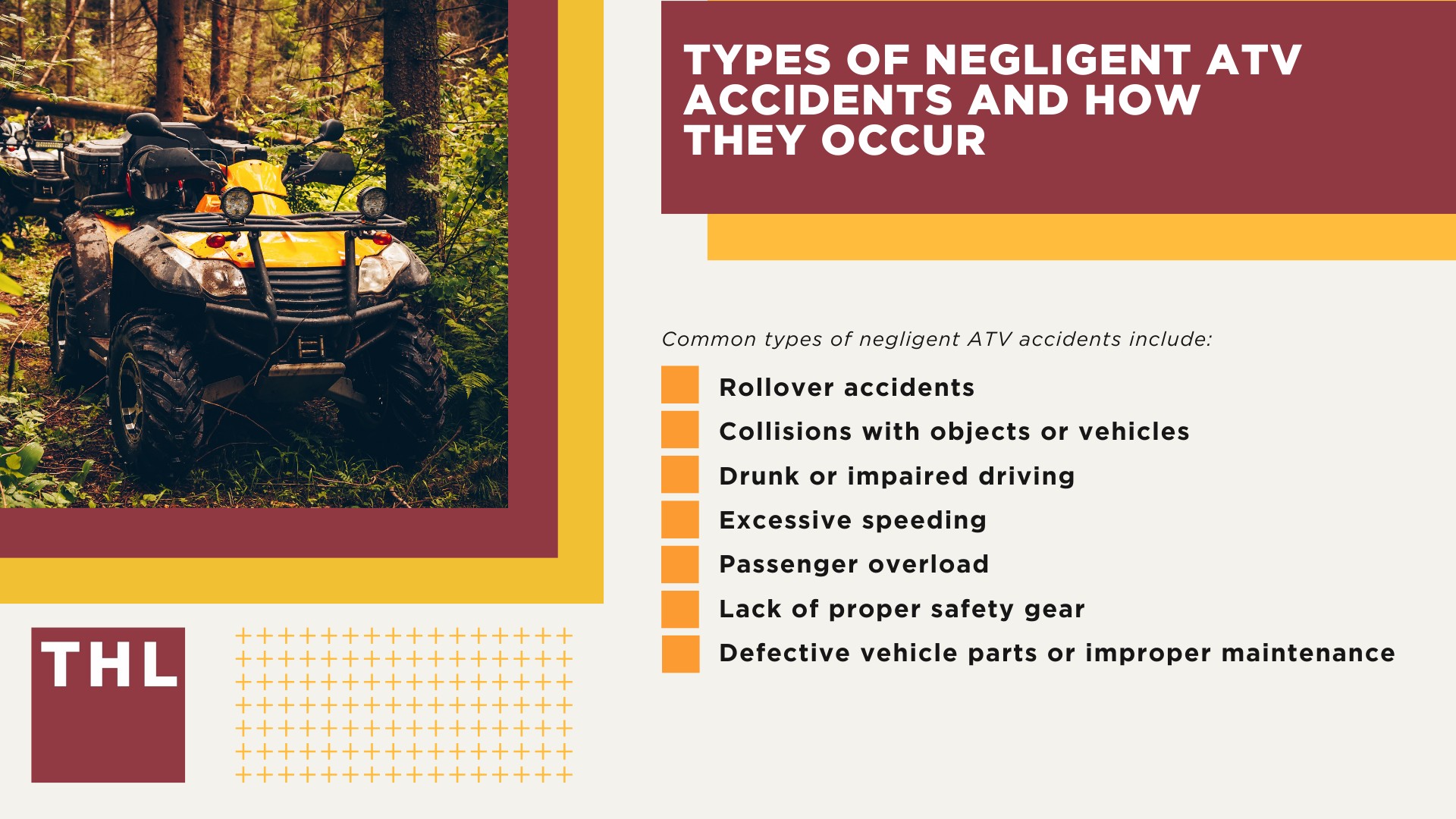
TorHoerman Law pursues personal injury cases involving ATV crashes where another party’s negligence played a direct role in the outcome.
Common types of negligent ATV accidents include:
- Rollover accidents – Often occur when turning too sharply, riding at excessive speeds, or using the vehicle on paved roads where tires can catch or lose grip.
- Collisions with objects or vehicles – Happen when riders fail to maintain control or ride in areas not designed for ATV use, such as public roads or dense wooded trails.
- Drunk or impaired driving – Alcohol and drug use significantly impair judgment and reaction time, making it extremely dangerous to operate any off-highway vehicle.
- Excessive speeding – Driving too fast, especially on uneven or off-road terrain, can cause the ATV to lose traction or flip.
- Passenger overload – Many ATVs are designed for a single rider; carrying extra passengers can throw off balance and increase the risk of ejection or tip-over.
- Lack of proper safety gear – Riding without helmets or protective clothing often results in more severe injuries during crashes or ejections.
- Defective vehicle parts or improper maintenance – Faulty brakes, worn tires, or steering malfunctions can cause loss of control, especially during off-road use.
Understanding how these accidents happen can help victims determine if another party—such as a negligent operator, landowner, or manufacturer—may be legally responsible.
If you were injured due to another person’s failure to follow ATV safety rules or operate responsibly, you may be eligible to pursue a personal injury claim.
Our legal team investigates each accident carefully to determine liability and fight for the compensation injured victims deserve.
Common Injuries Suffered by ATV Accident Victims
ATV and OHV injuries can be severe, especially when accidents occur at high speeds or involve rollovers on uneven terrain.
Because off-road vehicles offer limited protection, riders are at high risk of suffering traumatic harm in a crash or ejection.
Common injuries from ATV accidents range from minor wounds to life-threatening conditions that may require long-term care or result in permanent disfigurement.
Injuries suffered in ATV, UTV and OHV accidents may include:
- Head injury and head trauma resulting from impact or ejection
- Neck injuries caused by sudden jolts or violent crashes
- Spinal cord injuries, including paralysis
- Broken bones, especially in the arms, legs, and ribs
- Lacerations from contact with sharp debris, branches, or metal
- Amputations due to crush injuries or severe trauma
- Internal bleeding or organ damage
- Facial fractures or dental injuries
- Burns from engine fires or fuel leaks
- Road rash or abrasions from being dragged or thrown
- Permanent disfigurement from deep cuts, burns, or surgical outcomes
- Joint injuries, including dislocated shoulders or knees
- Soft tissue injuries, such as torn ligaments or muscle damage
- Psychological trauma, including PTSD or anxiety after the crash

